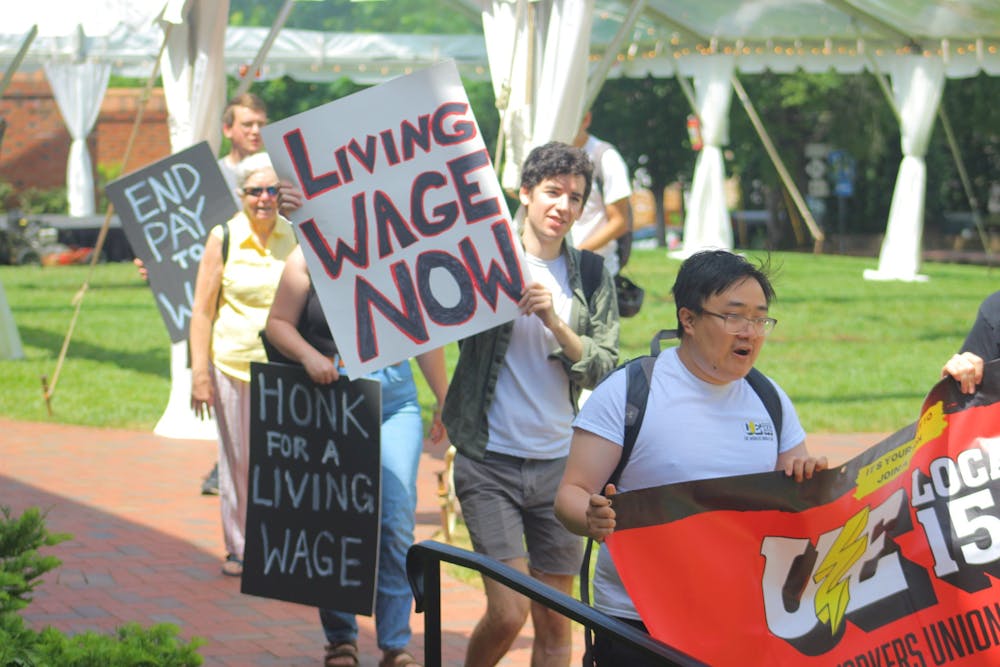“Wonder why we’re full of rage? It’s because we’re underpaid!”
These are some of the words The Workers Union at UNC chanted at a rally outside the Carolina Inn on Wednesday during a Board of Trustees committee meeting that was taking place inside.
At Wednesday’s meeting, 2023–24 Student Body President Christopher Everett was to present a resolution approved by UNC’s Joint Governance Council pledging support for graduate students and their demands, including the repeal of North Carolina General Statute § 95-98, or the collective bargaining ban.
Public workers in North Carolina have the right to form and join unions and negotiate with their employers for benefits, fair wages and fair working conditions. However, General Statute § 95-98 makes it illegal for employers to enter a collective bargaining contract with their employees.
The statute — regarded as the last remaining Jim Crow law in North Carolina by the NAACP – is currently being addressed in the N.C. General Assembly.
Everett's presentation of the Joint Governance Council’s resolution was subsequently moved to Thursday morning’s BOT full board meeting, where Everett said that the students called for the board to publicly express support for the end of the collective bargaining ban.
“Really, it’s all about maintaining power, of course, and silencing poor people and disproportionately people of color,” Trey Anthony, president of the Workers Union, said. “So that is the centerpiece of our demands. And that’s what’s actually going to get presented.”
On May 1, International Workers’ Day, the Workers Union unveiled their official demands to the UNC administration and the BOT, which Anthony read aloud at Wednesday’s rally.
These demands include the reallocation of state funding from partisan projects – like the School of Civic Life and Leadership – and demands to improve the quality of life for UNC’s public workers. They also included the reallocation of funding from UNC Police to community-based justice initiatives and alternatives to police-based emergency responses.




